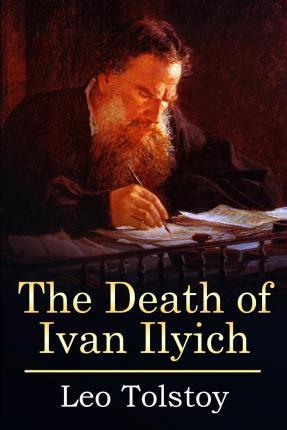The Death of Ivan Ilyich: (Mockingbird Classics Deluxe Edition)

The Death of Ivan Ilyich: (Mockingbird Classics Deluxe Edition)
The Death of Ivan Ilyich
Leo Tolstoy (1828 - 1910) The Death of Ivan Ilyich, first published in 1886, is a novella by Leo Tolstoy, one of the masterpieces of his late fiction, written shortly after his religious conversion of the late 1870s. The novella tells the story of the death of a high-court judge in 19th-century Russia. Interpretation In his article of 1997, psychologist Mark Freeman writes: Tolstoy's book is about many things: the tyranny of bourgeois niceties, the terrible weak spots of the human heart, the primacy and elision of death. But more than anything, I would offer, it is about the consequences of living without meaning, that is, without a true and abiding connection to one's life ... Indeed, the mundane portrayal of Ivan's life coupled with the dramatization of his long and grueling battle with death seems to directly reflect Tolstoy's theories about moral living, which he largely derived during his sabbatical from personal and professional duties in 1877. In his lectures on Russian literature, Russian-born novelist and critic Vladimir Nabokov argues that, for Tolstoy, a sinful life (such as Ivan's) is moral death. Therefore death, the return of the soul to God, is, for Tolstoy, moral life. To quote Nabokov: "The Tolstoyan formula is: Ivan lived a bad life and since the bad life is nothing but the death of the soul, then Ivan lived a living death; and since beyond death is God's living light, then Ivan died into a new life - Life with a capital L." The Death of Ivan Ilyich, therefore, is more than a story about death. Death permeates the narrative in a realistic and absorbing fashion but, interestingly enough, the actual physicality of death is only passively mentioned in the early chapters during Ivan's wake. Instead, the story leads the reader through a pensive, metaphysical exploration of the reason for death and what it means to truly live. Tolstoy was a man who struggled greatly with self-doubt and spiritual reflection, especially as he grew close to his own death in 1910. In his book, A Confession, Tolstoy writes: No matter how often I may be told, "You cannot understand the meaning of life so do not think about it, but live," I can no longer do it: I have already done it too long. I cannot now help seeing day and night going round and bringing me to death. That is all I see, for that alone is true. All else is false. This personal epiphany caused significant spiritual upheaval in Tolstoy's life, prompting him to q
54.17Lei
54.17Lei
Livrare in 2-4 saptamani
Descrierea produsului
The Death of Ivan Ilyich
Leo Tolstoy (1828 - 1910) The Death of Ivan Ilyich, first published in 1886, is a novella by Leo Tolstoy, one of the masterpieces of his late fiction, written shortly after his religious conversion of the late 1870s. The novella tells the story of the death of a high-court judge in 19th-century Russia. Interpretation In his article of 1997, psychologist Mark Freeman writes: Tolstoy's book is about many things: the tyranny of bourgeois niceties, the terrible weak spots of the human heart, the primacy and elision of death. But more than anything, I would offer, it is about the consequences of living without meaning, that is, without a true and abiding connection to one's life ... Indeed, the mundane portrayal of Ivan's life coupled with the dramatization of his long and grueling battle with death seems to directly reflect Tolstoy's theories about moral living, which he largely derived during his sabbatical from personal and professional duties in 1877. In his lectures on Russian literature, Russian-born novelist and critic Vladimir Nabokov argues that, for Tolstoy, a sinful life (such as Ivan's) is moral death. Therefore death, the return of the soul to God, is, for Tolstoy, moral life. To quote Nabokov: "The Tolstoyan formula is: Ivan lived a bad life and since the bad life is nothing but the death of the soul, then Ivan lived a living death; and since beyond death is God's living light, then Ivan died into a new life - Life with a capital L." The Death of Ivan Ilyich, therefore, is more than a story about death. Death permeates the narrative in a realistic and absorbing fashion but, interestingly enough, the actual physicality of death is only passively mentioned in the early chapters during Ivan's wake. Instead, the story leads the reader through a pensive, metaphysical exploration of the reason for death and what it means to truly live. Tolstoy was a man who struggled greatly with self-doubt and spiritual reflection, especially as he grew close to his own death in 1910. In his book, A Confession, Tolstoy writes: No matter how often I may be told, "You cannot understand the meaning of life so do not think about it, but live," I can no longer do it: I have already done it too long. I cannot now help seeing day and night going round and bringing me to death. That is all I see, for that alone is true. All else is false. This personal epiphany caused significant spiritual upheaval in Tolstoy's life, prompting him to q
Detaliile produsului










